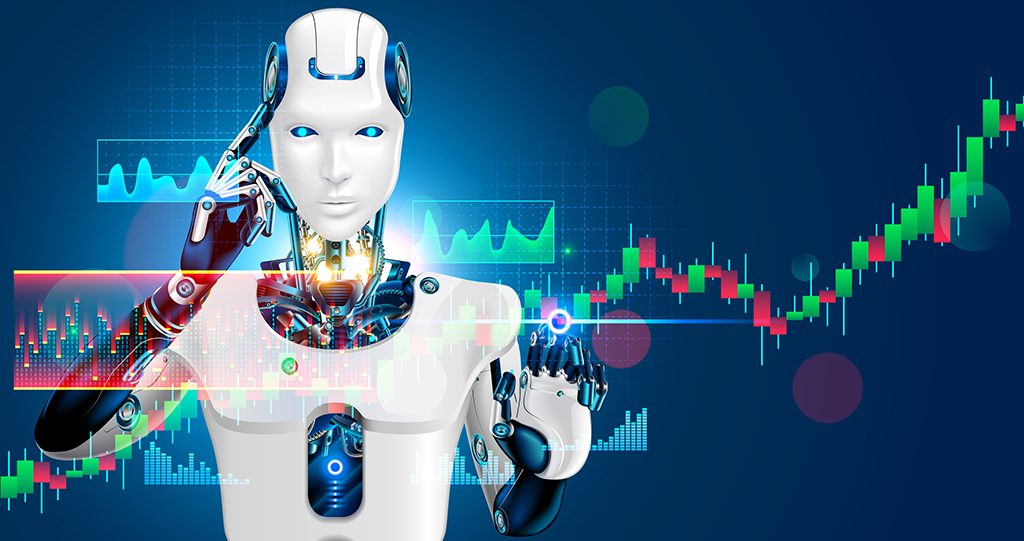HR and Artificial Intelligence – Answering the Big Questions Together
Today’s human resources professional must attempt to chart a course through a perfect storm of hype about artificial intelligence with little to no guidance and wildly conflicting predictions. If one set of experts are to be believed, an effulgent utopia is just around the corner, with AI serving our every whim and solving every problem from poverty to disease and from climate change to aging. Another set of equally credentialed experts predicts a cascade of burgeoning crises starting with dystopian unemployment and culminating in human extinction.
Right now, interest in AI is at historically record levels and any business that does not either find a way to incorporate AI in its systems or relabel its products as “AI-based” might as well start printing pink slips. AI is such a fundamental innovation that it is referred to as “the new electricity.”[i]
For the last five years, I’ve been helping individuals and companies navigate this maelstrom of blather, and while it’s tempting to characterize it as uninformed bombast, there is much to be concerned about and act upon.
True, if you inspect the Gartner Hype Cycle for AI[ii] you can see many technologies queued up on the up slope of the Peak of Inflated Expectations, waiting for their bubble to burst before they join the ones already sliding towards the Trough of Disillusionment. I do expect that starting in 2021, we will enter a new “AI Winter,”[iii] a period of widespread antipathy toward and distrust in artificial intelligence that has occurred more than once before when AI made rapid advances and was then promptly expected to be on the verge of instigating robot revolution.
This new downturn will start when it becomes clear that autonomous vehicles are not going to remake transportation in the way so many pundits have predicted that it has become conventional wisdom. Cars without steering wheels or pedals will not be dropping you off at work to go on to mint money operating as a taxi until it’s clocking-out time. Roads will not empty, auto insurance companies will not wither, trauma wards will not sit vacant, and parking lots will not be plowed under. These predictions have taken on a life of their own and by 2021 it will be apparent that they are further away from realization than anyone can safely forecast.

Peter Scott will be speaking at the HR Conference & Expo in Vancouver – April 28 & 29, 2020. Learn more about his topic HERE.
Many people will make the mistake of assuming all AI predictions were equally overblown, and this will set their businesses up for painful disruption when a lean, capable, and versatile AI-as-a-commodity emerges on the other side of the AI Winter. What does it take to be properly prepared during such confusion?
The answer is not information, but insight. There are no formulas for thriving through this disruption for the simple reason that formulas are the birthright of machines. Any plan simple enough to be codified in information can be executed by an AI, if not now then soon. Distinguishing ourselves from those machines requires investing in human nature. What we must do is prepare ourselves to be the kind of people who can handle an uncertain future.
Here are some of the principles that will guide HR professionals and their businesses through this technological revolution.
Automate Whatever You Can
The promise of AI is to free us from drudgery. Where in your job do you feel like you’re performing a rote task, acting like a machine? A machine can do that now, so procure it. Save your energy for something more uniquely human. You’ll need it.
Question Common Assumptions About AI
AI is already doing some of the things that most people think it will never do or is decades away from. For the first fifty years of computer science, the statement “A computer can only do what it is programmed to do” was axiomatic. It is no longer true. If it were, we would not have computers that can perform facial recognition, because no one knows how we recognize faces. Yet computers now do that better than we can, and we did that not by programming them, but by training them.[iv] We don’t know how they do it, either. Another everyone-knows-that fact is that computers aren’t creative. Certain expressions of creativity can be performed adequately or superbly by AI. These include report-writing,[v] scripting TV commercials,[vi] and composing original music.[vii] It’s important to understand what kind of creativity is automatable and what isn’t. It is a stereotype of computers that they cannot understand emotions. Yet it is now possible for AI to read human emotions accurately through facial expressions.[viii] It will not be long before this technology is integrated with smartphones to make it possible to automate some levels of guidance employees toward greater fulfillment and job engagement.
Be Ready To Detach From Parts Of Your Job
Some aspects of what you do may not be drudgery; may, even, be enjoyable to you. But if they can be automated then you will not be able to compete with an AI at that task. Understand what those aspects are and pick your battles. Some of those automatable tasks involve human interaction. Companies like HireVue and Codility market AI for conducting interviews with and screen potential hires. Deloitte has turned over part of the task of curating employee experience to an AI.[ix] Direct your talents of empathy and coaching toward the levels that AI is least suited to.
Assess Your Place In The Market
If you are in a traditional, product-based industry, you are vulnerable to competitors using AI at scale to vaporize your margins. AI is becoming a commodity that will be leveraged asymmetrically by wealthier enterprises. If you are a relatively small player, consider shifting to an innovative industry and to services instead of products.
Don’t Bother With Long-range Predictions
Humans have never been very good at this and the horizons are shrinking all the time thanks to exponential growth in technology. Unless you’re prepared to revise your predictions on a near-weekly basis, they will be useless for most of their intended lifespan.
Become A Futurist
The paradoxical counterpart to giving up long-range predictions is that we need more than ever to exert a conscious focus on the future. Instead of directing our energy towards predictions, however, we should assert an ownership over the future and look for where and how we make or influence decisions about how technology is used at the workplace to shape the quality of our lives.
Decide Who You Are
When automation knocks at your door is the worst time to ask the question, “What does it mean to be human?” Start now, amidst the luxury of stability. Many people’s identities are wrapped up in what they do, and the metaphysical rug will be yanked from under their feet when they discover a machine doing that better. When you undertake your own journey to find your purpose you will be better able to assist them in dealing with that existential angst.
Decide What You Stand For
Every age has authored utopian dreams of a future characterized by equality, fulfilment, abundance, and transcendence. Yet we still inhabit a world shaped by inequity, deprivation, suffering, and crises. As much as we might like to lay all the blame for that at the feet of our national leaders, most of those forces were shaped by us all, collectively. Undertake your own cultural revolution at the workplace – under the more palatable label of Digital Transformation – to apply Systems Thinking[x] to uncover the dynamics that cause people to become victimized by technology.
These themes may seem grandiose if all you started out looking for was how to apply AI in the business. But because AI is on a course to ultimately rival or exceed us at decision-making, and will develop faster than almost everyone expects, we’re overdue for taking that long hard look at the big questions.
Peter Scott is a futurist, author, speaker, and technology expert. After receiving a Master’s degree in Computer Science from Cambridge University, he moved to California to work for NASA’s Jet Propulsion Laboratory. Independently, he raises awareness about exponential progress in technology, particularly artificial intelligence. He has appeared on radio and television, given university courses and numerous appearances to highly diverse audiences in several countries. He has given two TEDx talks and in February 2020 he will deliver another at the largest TEDx in Western Canada in addition to speaking before an all-party parliamentary group on the future of AI in Britain’s House of Lords. His book, Crisis of Control: How Artificial Super Intelligences May Destroy or Save the Human Race explores this topic. He has founded the Next Wave Institute, an international educational organization and consultancy for futureproofing. Peter can be reached at humancusp.com.
For the latest HR and business articles, check out our main page.
Sources










